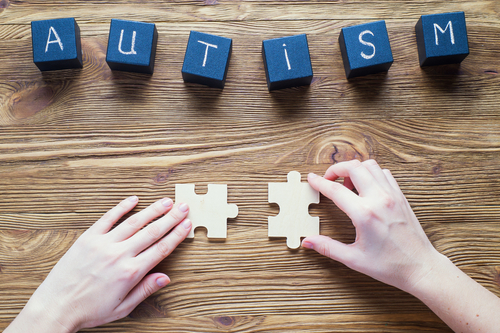Dr. Scott Hunter

So much is happening in autism research today that it’s hard to know where to begin. We are, at last, beginning to better understand the broad range of phenotypic differences in what we classify as autism spectrum disorders. Because we’re developing a better understanding of the different variables that predict risk, we can better target different treatment approaches and compounds so they can be most useful.
This opens so many paths forward, but we’ll focus on two: the gut and the environment, and how technology is improving diagnosis and assessment.
The gut and the environment
We’re seeing a renewed interest in the gut–specifically a GI microbiome. That’s because evidence continues to suggest that gut microbiota plays a critical role in gastrointestinal symptoms and behavioral impairment in individuals on the autism spectrum.
This is especially intriguing in light of the growing research into environmental factors and developing symptoms consistent with autism spectrum disorder. Looking at the microbiome is giving us a new window into this. Better understanding the relationship between the environmental factors that may be at play prenatally and postnatally may give us a greater understanding of different phenotypic expressions. I think we’re already beginning to see some of that play out.
We’re at a stage now where we are able to address the multiple challenges for individuals with autism spectrum disorder; that puts us in a very different place than we were even just 10 years ago.
Diagnosis, assessment, and technology
One of the challenges has been the lack of measures that can be used in clinical trials to gather information in an effective way. That’s changing, and we’re also starting to see many measures translated in other languages. Of particular note is China’s increased use of ADOS, M-CHAT, the social responsiveness scale, and SEQ.
But what’s especially exciting is the use of technology to improve diagnosis and assessment. There’s tremendous potential for moving beyond traditional scales and into technology. For example, we can now use eye-tracking technologies in diagnostic settings–that research continues to move forward.
After years of research, we’re now seeing increased use of virtual reality as a component of assessment. Putting individuals into VR role-playing situations allows them to demonstrate, in real-time, how they’re able to engage the world around them. This also allows individuals on the spectrum to practice their social skills.
One of the things we’ve learned about individuals with autism spectrum disorders is that they often are more comfortable engaging with technology than with people. As a result, technology has been very helpful in understanding a person’s strengths–something we’re not necessarily able to glean from one-on-one social interactions.
With the challenges in the neurodevelopmental area–including autism spectrum disorders and some of the intellectual disability syndromes–we’re finding we can gain more information by moving to iPad-based presentations and using more computer-based systems.
During the next decade, we will see greater use of technology-based assessment tools. It may require a bit of an adjustment to move from traditional, interactive, pencil-and-paper assessments, but it will be worth it. Once we do, we’ll be in a whole new world in terms of assessments, allowing us to do more real-time assessment in the environments our patients live in every day.
Learn more on the advances in autism research in this podcast: https://www.wcgclinical.com/insights/podcast/clinical-trials-in-autism-and-neurodevelopmental-disorders-dr-scott-hunter
About the Author
Scott J. Hunter, PhD is Senior Scientific Expert in Neurodevelopmental Disorders and Rare Pediatric Diseases for WCG Clinical Endpoint Solutions. Previously, for 22 years, he was on the faculty at The University of Chicago, where he was Professor of Psychiatry, Behavioral Neuroscience, and Pediatrics and Director of Neuropsychology for UChicago Medicine. He served as Chair of the department’s Diversity, Equity, and Inclusion Committee. A fellowship trained clinical medical ethicist, he was vice-chair for the UChicago Medicine and Biological Sciences Institutional Review Board and faculty with the MacLean Center for Clinical Medical Ethics. Dr. Hunter served as 2022 chair of the American Psychological Association (APA)’s Board for the Advancement of Psychology in the Public Interest and 2014 chair of the Committee on Professional Practice and Standards with the APA Practice Directorate.
